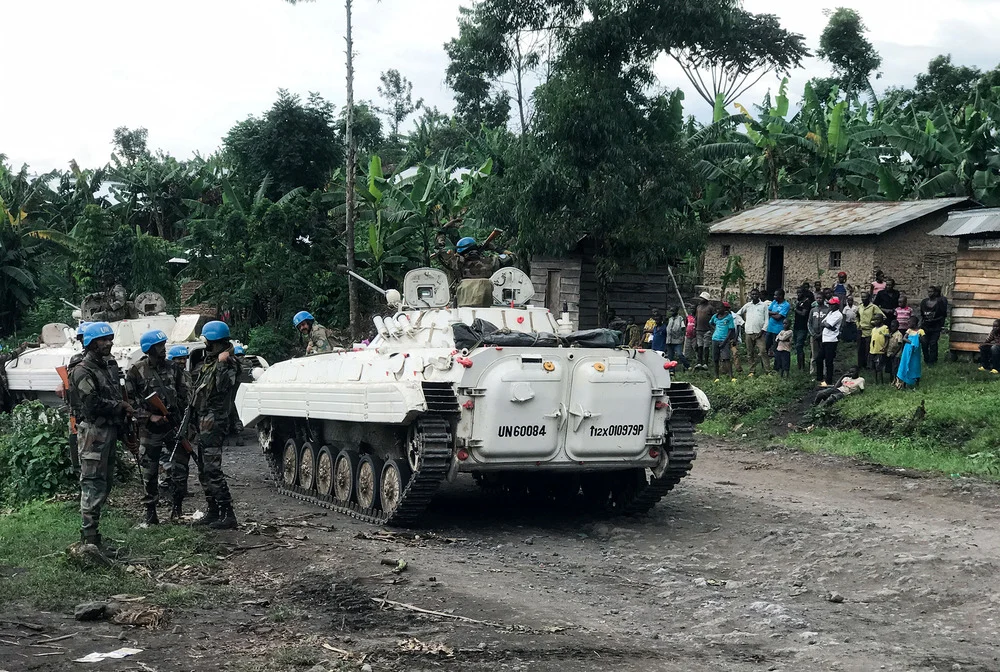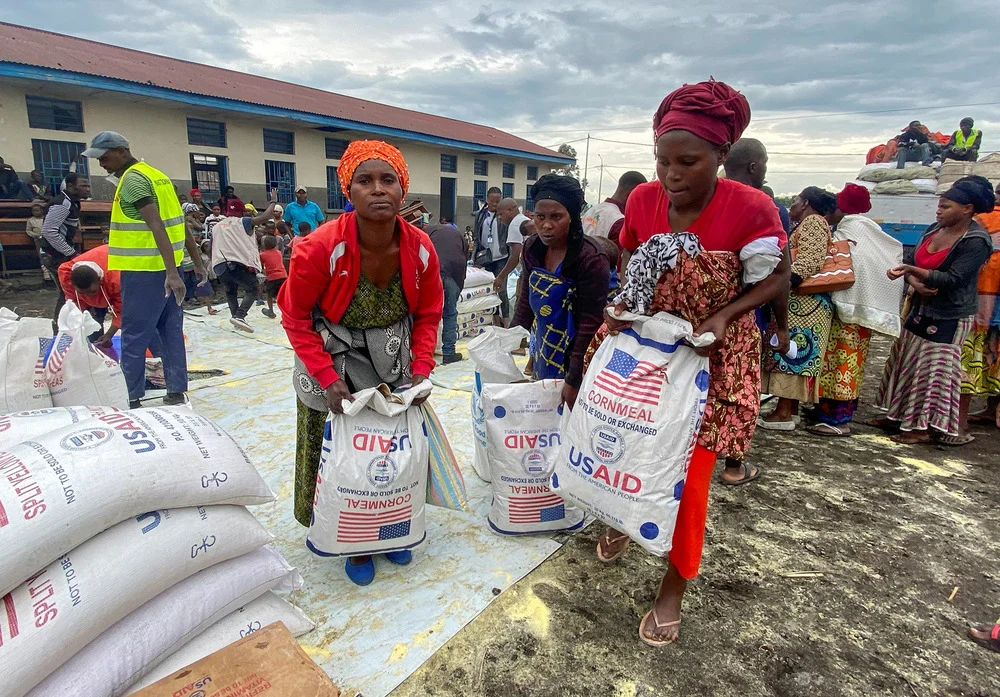
More than 170,000 people have escaped their homes in the past four months in eastern Democratic Republic of Congo amid an offensive by a previously dormant armed group that has reignited regional tensions between Great Lakes states.
For several months, the M23 rebel group has fought Congolese troops in North Kivu province. UN experts say its sights are set on Goma – a major city of nearly two million people – although the group has offered ceasefires and called for talks too.
Kinshasa accuses Rwanda of backing the regrouped rebels – just as UN investigators did in a previous M23 insurgency a decade ago – although Kigali denies involvement. The two countries agreed to reduce tensions yesterday following talks mediated by Angola.
Anne Sylvie Linder, deputy head of the International Committee of the Red Cross sub-delegation in Goma, said the fighting has resulted in “a serious humanitarian crisis” that aid groups have been struggling to respond to due to insecurity.
Although some displaced people have returned home following pauses in combat, they “move again each time the fighting renews”, Linder said during a telephone interview early last month.
The M23 insurgency adds to a long list of security troubles in eastern DRC, where more than 100 armed groups are active. Conflict has displaced 700,000 people this year, while over 5.5 million are displaced overall – the third highest figure in the world in 2021.
President Félix Tshisekedi, in power since January 2019, has tried to address insecurity through different military initiatives in the east. He has imposed martial law; allowed Ugandan troops into the region; and approved the deployment of an East African force.
Non-military measures have been developed too. Recent peace talks with armed groups were held in Kenya, while plans to disarm and help fighters back into civilian life are in the works. Tshisekedi has also been involved in regional diplomacy.
Yet analysts, local officials, and civil society leaders from different parts of North Kivu and neighbouring Ituri province say there has been little positive change during Tshisekedi’s tenure, which will be judged in polls next year.
On top of the M23 crisis, many cited attacks by the Allied Democratic Forces (ADF) – a Ugandan militant group that has pledged allegiance to the so-called Islamic State – and the CODECO militia, which has killed dozens of people in recent months alone.
“When we instituted martial law, we had hoped that this time we would overcome the militiamen,” said Tembos Yotama, a national parliament representative from Butembo, a town in North Kivu. “[But] we never recorded attacks of such intensity before [the decree].”
This briefing looks at the new M23 rebellion, details developments with other armed groups in the region, and analyses the different measures Tshisekedi has taken to try and reduce violence since taking office.
Named after a failed peace deal signed on March 23, 2009, the M23 is descended from a line of Congolese rebel groups that chart a course back to the 1990s, when genocide in neighbouring Rwanda spilled over the border, triggering regional conflicts in DRC.
The group led the last major rebellion in the east back in 2012. It seized chunks of North Kivu, including Goma, before government troops and UN peacekeepers forced its fighters into Rwanda and Uganda, which were both accused of supporting the rebels.
A pact between Kinshasa and the M23 was inked in late 2013, but little of it came to fruition. Demobilising and offering amnesty to fighters would have gone down badly with a Congolese public largely hostile to the rebels.
Elements of the group returned to DRC in late 2016 though fresh clashes weren’t reported until last November. Recent battles saw the group – which UN experts say has several hundred fighters – reach Goma’s outskirts and capture the border town of Bunagana.
“When a new DDR programme was announced, it was an opportunity for the M23 to push their agenda.”
Although the timing of the current escalation is unclear, analysts believe the M23 is trying to force negotiations with the government, especially as a new disarmament, demobilisation and reintegration (DDR) programme is being rolled out for rebel groups.
“When a new DDR programme was announced, it was an opportunity for the M23 to push their agenda,” said Jason Stearns, director of the Congo Research Group (CRG) at New York University.
Stearns said there’s “no certainty” Rwanda is backing the M23, but that the group’s firepower – which includes long-range weapons, according to the UN – and reports from the ground, “suggest that it’s very likely”.
Josaphat Musamba, a Congolese researcher and PhD student at Ghent University in Belgium, said “it is clear that there is support” behind the M23, citing the fact the rebels reappeared in DRC after having been cantoned outside the country.
Rwanda could be backing the M23 to bolster its influence in its mineral-rich neighbour. Other regional states, including Burundi and Uganda, have deployed troops to eastern DRC in recent months with Kinshasa’s authorisation, leaving Kigali feeling marginalised.
Rwanda has a long history of intervening in DRC. It backed rebellions and sent troops across the border in search of the Hutu militias that carried out the 1994 genocide of Tutsis. These wars killed millions of people in the late 1990s and early 2000s.
Still, Kigali denies having a hand in the current violence and has accused DRC of firing rockets into its territory. It also claims the Congolese military is collaborating with the FDLR, an armed group that traces its roots back to Rwanda’s Hutu genocidaires.
Analysts say the M23 should not be understood solely as a Rwandan pawn. The group, and its antecedents, have all been led by Tutsi officers, whose mobilising power draws on the discrimination North Kivu’s Tutsis have faced due to their Rwandan roots.
Rwandans and Congolese of Rwandan descent have, meanwhile, faced a backlash since the M23 crisis restarted. Videos on social media show machete-wielding men searching for them, while politicians and diaspora voices have spread hate speech.
- The New Humanitarian report











